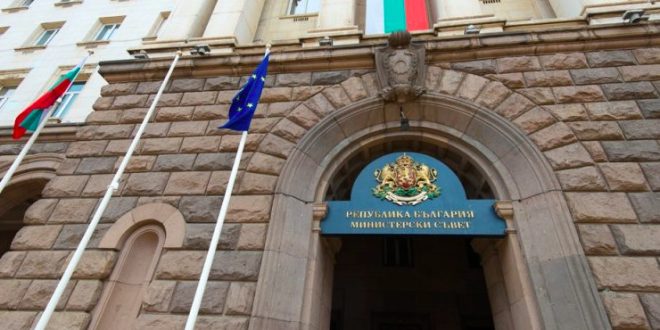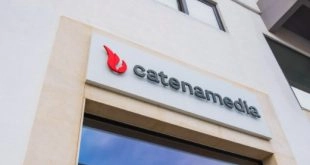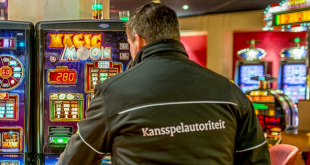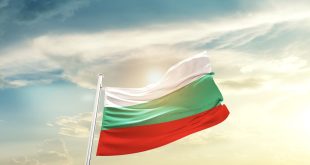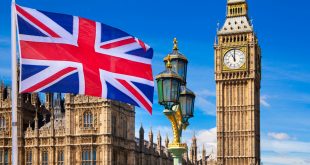As an unusual April heatwave engulfs the streets of Bulgaria’s capital, passing by the doors of the Parliamentary House in the heart of Sofia might leave one with the impression that the heat is coming from its halls.
Bulgaria’s brightest minds tirelessly pace back and forth in preparation for another day of debates to defend their electorates’ interests – and this time gambling is on the agenda.
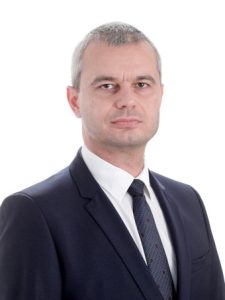
As 2023 came to an end, the last thing that Kostadin Kostadinov and his nationalist party Revival (Bulgarian: ‘Vazrazhdane’) did before signing off for the holidays was to draft a proposal that amends certain legislations in the country’s current Gambling Law for a better aligned framework.
One significant point of interest was the almost complete overhaul of advertising rules, which Vazrazhdane thinks is necessary to push back against an ‘onslaught’ of gambling adverts that roam freely across TV, radio and other electronic media, thus reaching minors and vulnerable people – something in complete contradiction to current regulations.
Four months after the draft, speaking from the Parliamentary tribune on 29 March, Kostadinov scolded his colleagues about the lack of interest in the draft and the failure of the relevant committees to take it up for consideration, and announced that Vazrazhdane will again push for the amendments’ adoption by bringing it up for debate during the first plenary session for April, which took place yesterday.
Proposed changes
Taking the plenary hall stage, the party opened up the session with the amendments first in line for what turned to be a 2-hour long debate on gambling and how the industry has been strongly politicised.
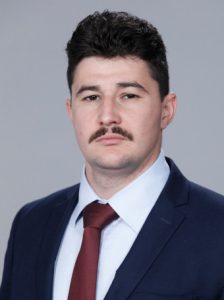
Clement Shopov, a member of the Vazrazhdane party, began by calling problem gambling ‘the quiet addiction’ due to what he later described as strong stigma among those experiencing harm, preventing them from speaking out.
Shopov then brought forward the main points which his party’s draft sought to amend:
- A blanket ban for gambling advertisements;
- Optimise the efficiency of the national self-exclusion registry;
- Increase land-based win payouts from 5000 levs (£2.2k) to 10000 levs;
- Changes to the licensing tax and gambling levy.
Diving into the reasoning behind the first point, the Vazrazhdane party member accused the industry of using advertisements not only to attract a new audience, but to also maintain the interest of those vulnerable to gambling harm, which in Shopov’s view are the ones bringing in the most revenue for gambling firms.
Explaining how Bulgaria should strive to follow stringent advertising restrictions, he used other European countries such as the Netherlands, Belgium and Italy as examples.
On the proposed changes to player withdrawals, Shopov said that it is preferable in every way for customers to be offered instantaneous deposit and winning payouts from land-based casinos to a maxim of 10k levs, which he believes will keep customers away from visiting again as banks can sometime take a few days to transfer the funds.
What’s more, Shopov called for the total eradication of licensing fees for gambling operators in favour of a 15% tax levy on all deposits made – just as it was prior to 2014 before the Bulgarian Socialist Party changed the gambling framework.
The only difference being that Vazrazhdane also wants to include land-based casinos under the proposed legislation, which have been previously excluded. Shopov expects the changes to bring a total of 500mn levs (£219mn) annually to the treasury.
Currently, after a majority vote in December last year, gambling operators are required to pay 20% of the difference between bets made and paid wins.
Shopov also added that the proposed changes will ensure that all proceeds made from taxes will be invested directly into sport, as the money collected from licences so far “is very little compared to the damages gambling operators impose on the society”.
The last proposed change in the draft related to the self-exclusion register, which Vazrazhdane believes should have a minimum time frame of two years before a player is able to take themselves off the list.
Due to the lack of centralisation when it comes to the scheme, players banned from one casino can easily enter another venue to gamble there – an issue that has previously been brought up several times for discussion.
The National Revenue Agency (NRA), which is in charge of the regulated gambling market in Bulgaria, recently published a report showcasing that since 2022 there have been a total of 36,000 Bulgarians who have signed up for the self-exclusion register.
Media’s role
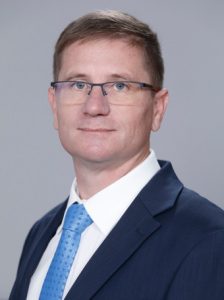
Another highlight from the plenary session were the comments of Vazrazhdane MP Dimo Drenchev, who accused the media companies in Bulgaria of having a huge conflict of interest problem where 50% of their income comes from gambling advertisements.
He called the media environment in the country “toxic” and said that the media industry is unable to remain objective due to its “addiction” towards gambling companies.
Drenchev’s comments were actually a follow up to last week’s parliamentary hearing of Sonya Momchilova, Chairwoman of Bulgaria’s Electronic Media Council (EMC), which monitors the broadcasting of content.
In a hearing reporting on EMC’s work efficiency, Momchilova stated that the regulatory body is powerless when it comes to the control of gambling ads, and that this is the responsibility of the NRA under the Gambling Act.
She shared Vazrazhdane’s views that a point has been reached where stricter control over ads is needed – by either implementing a blanket ban or agreeing on specific time periods where they should be broadcasted.
Final vote
When yesterday’s plenary session hit the 2-hour mark, a populist minority voted in favour of the draft against a political majority who chose to abstain, essentially leading to the proposed legislation falling through.
However, with Bulgaria almost certainly heading to early elections in June, it is clear that the gambling sector in the country is yet to reach maturity, with many more developments to follow.
